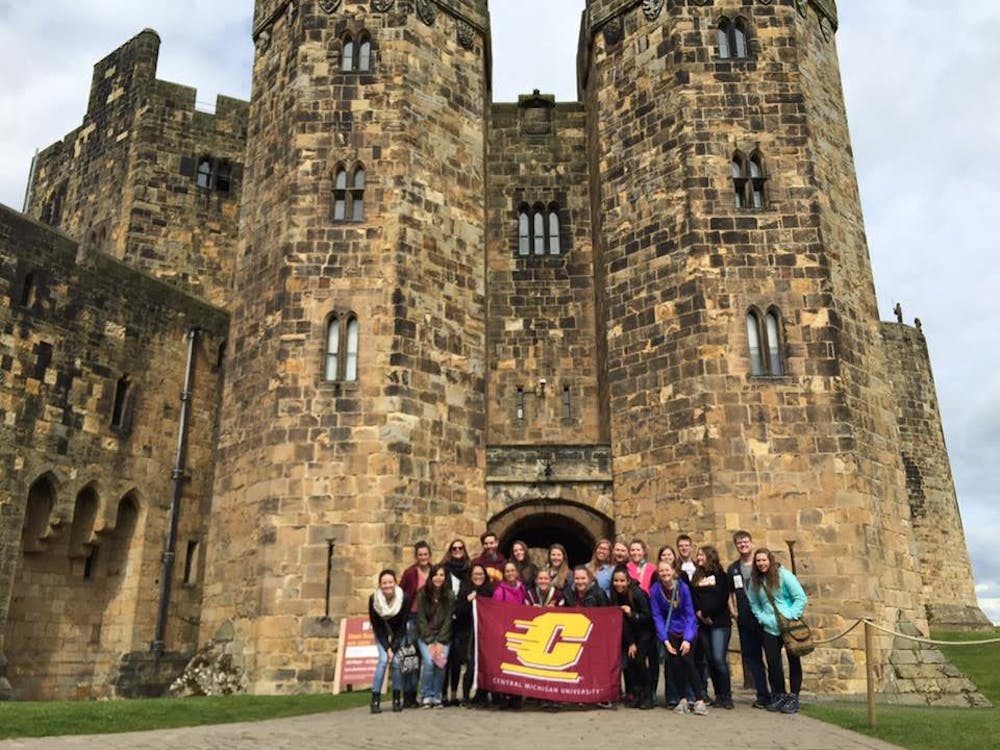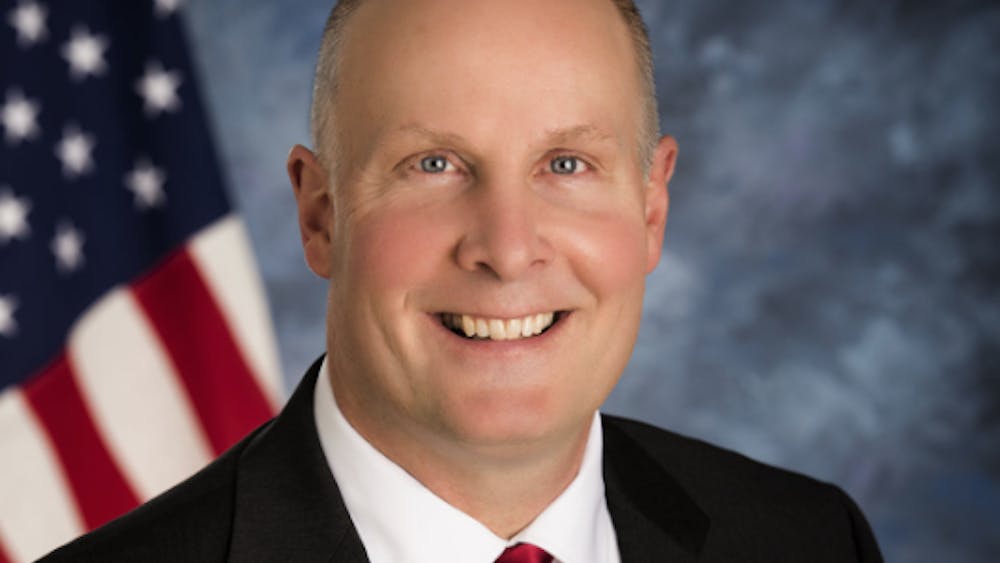“Harry Potter” course harnesses passion for literature

The spring 2016 Harry Potter-themed class poses in front of Alnwick Castle in Northumberland, England.
David Fitzpatrick didn’t grow up reading the “Harry Potter” books. He didn’t wait by the mailbox on his eleventh birthday waiting for a Hogwarts letter.
Instead, the Grand Rapids sophomore read the series all in a short sitting, and then eventually re-read them.
Last May, Fitzpatrick attended the third Harry Potter study abroad class. While studying the cultural phenomenon of J.K. Rowling’s “Harry Potter” series, the course was dedicated to deconstructing the wizarding world found in the books and comparing them to today’s reality.
“(‘Harry Potter’) helped develop my curiosity. The characters are relatable and human, despite being wizards,” Fitzpatrick said. “We can see bits of ourselves in the characters. We can find a home in them.”
For 10 days, students traveled to landmarks from the books and movies, including Edinburgh, Oxford, London, Durham, Watford and Cambridge. Students also toured the Warner Bros. Harry Potter Studio.
Yet the class isn’t a casual field trip. The moment they land in the United Kingdom, the students are constantly moving. They study the underground structures, the history of anything related to J.K Rowling, Scottish independence and the books — all activities and locations connected with the books and Rowling’s personal life.
“We did a lot of hiking. It’s physically demanding, but we expected it,” said Justin Wigard, CMU alumnus and spring 2015 teaching assistant for the course. “We were advised to invest in hiking boots and comfortable walking shoes because we would be traveling on foot all day. They do a lot of walking in the Harry Potter series, but if we were to take taxis, we’d miss massive portions of the city we could have seen by walking.”
The course is topic-driven and changes each semester. Joseph Michael Sommers, associate professor of English, said he doesn’t enter the course with a specific agenda — instead he lets the class guide itself based on what students are most interested in that semester.
Sommers said he’s surprised by how serious the topics surrounding the series has been. Everything from race, cultural differences, cultural anthropology and standard history have been topics of discussion, all of which later inspire the required Potter-related essay due after the study abroad trip.
Grand Rapids senior David Fitzpatrick wrote about the teaching methods and styles used by different Hogwart professors. The education major said the character Dolores Umbridge — a government-assigned professor who physically punishes her students — helped him recognize what he didn’t like about her and what he would like to be as a teacher.
“Literature — especially young adult literature — is extremely important to the development of a child’s curiosity and learning,” Fitzpatrick said. “As a future high school teacher, what I’m concerned about is not a lot of people seem to like reading once they become older. ‘Harry Potter’ are some of those books that make you passionate about reading, and keep that passion going.”
This passion is the core reason Sommers created the class, hoping to harness the passion, and gear it toward Harry Potter to remind students “how many great books are out there.”
Sommers said people have scoffed at the concept of “the living and breathing history of Harry Potter,” but he argued the series is worthy of a course because as times change, interpretation of the text also changes.
Sommers said when a student comes prepared with passion and vigor to take on more than what is otherwise asked of them, such as a class about the ‘Harry Potter’ series, they should be encouraged, not dissuaded.
“(I tell my students that they have) read these so many times — now go read other (novels),” Sommers said. “Let literature inform you. Let it invigorate your soul. Let Harry Potter be the gateway drug to a deeper sense of passion toward, not just literature, but the human spirit.”
Sommers said while there will not be a course held this spring, the next time it’s held will be “completely different,” including the stops made on the trips.
“People get tired by the end. It’s work. It’s physically enduring, it’s cognitively enduring. They’re on this thing they’ve always wanted to do, but it’s a lot of their first times being away,” Sommers said. “I like to think of the class as a transition into greater study abroad studies. It’s my hope. If I could impress anything upon those students — it’s how important it is to study abroad.”



